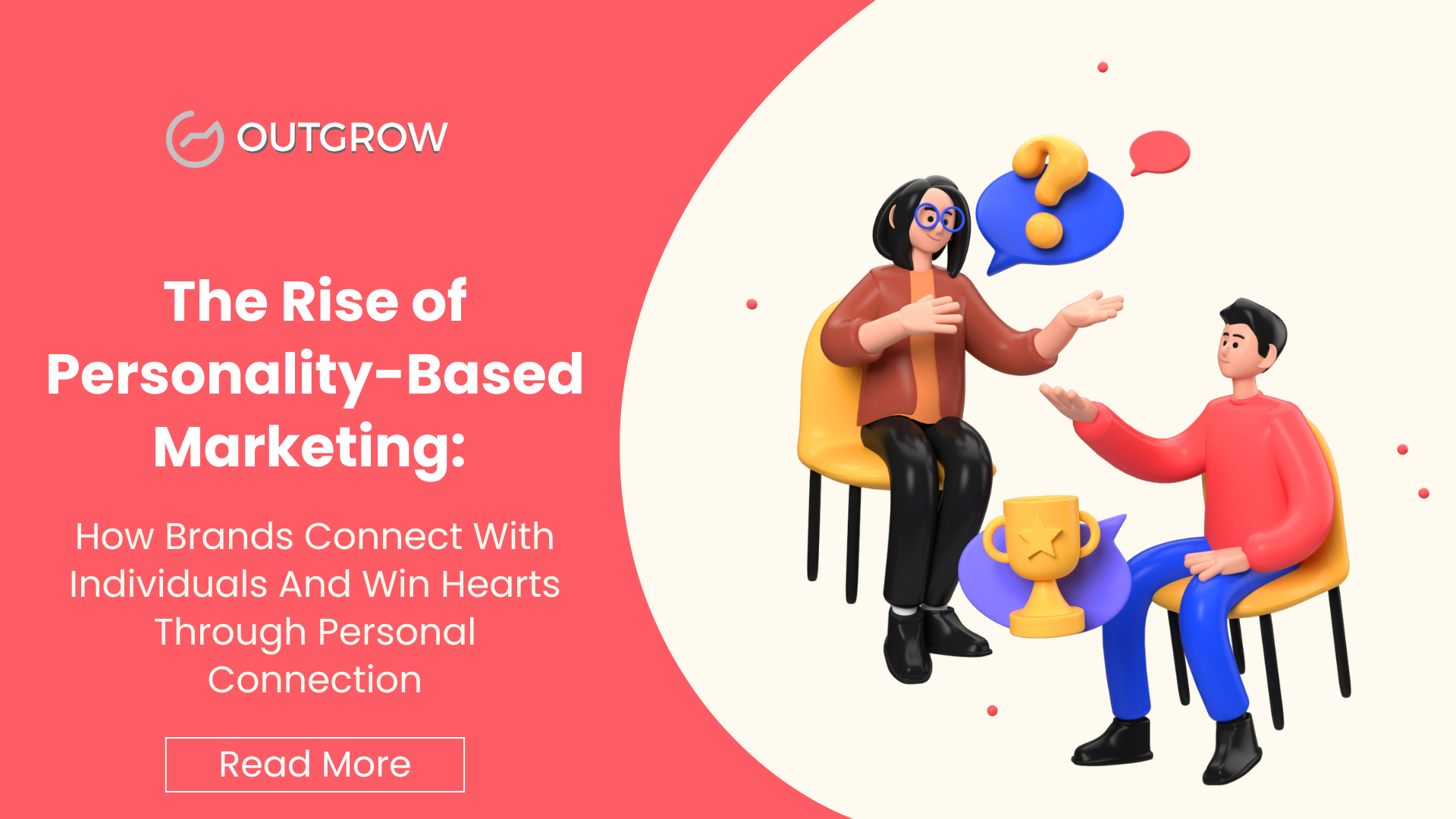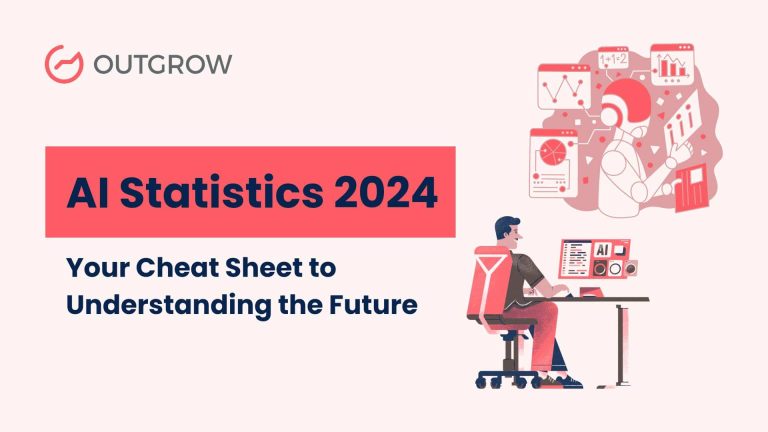The Rise of Personality-Based Marketing: How Brands Connect With Individuals And Win Hearts Through Personal Connection
Table of Contents
In today’s digitally overwhelmed marketplace, buyers are subjected to thousands of promotional messages daily. Simple vanilla advertising and generic campaigns no longer cut it because people seek authentic, personal experiences. Personality marketing – the revolutionary phenomenon that is making waves by transforming brand communication and engaging their folks through connection with individual personality, penchant, and psychological inclination.
What Is Personality Marketing?
Personality marketing is a cutting-edge marketing approach that tailors marketing communications, products, and experiences to individuals’ personality traits, behavior patterns, and mental predispositions. Contrary to conventional demographic-driven marketing that segments audience members based on age, location, or spending capacity, personality marketing delves into the “why” behind consumers’ behavior.
This is a technique that recognizes that the same-income, same-age person will purchase something entirely different based upon values, motivational drivers, and personality. It allows brands to leverage those natural behaviors and thereby establish more real connections and greater levels of engagement.
The Psychology Behind Personality-Driven Campaigns
The reason personality marketing is so effective is due to universal psychological principles. Anytime people listen to messages that are similar to themselves, either self-concept or personality, the following mental activities occur:
Mirror Neuron Activation: Individuals are drawn to material that reflects themselves and thus automatically feel a sense of familiarity and credibility.
Self-Concept Reinforcement: Messages that correspond to a consumer’s self-concept or idealized self-image reinforce brand love and devotion.
Cognitive Ease: Personalized content reduces mental effort involved in information processing, thereby boosting recall and response probability.
Emotional Resonance: Communication that is personality-focused will most probably generate emotional reactions, which significantly influence purchasing decisions.
Quiz-Based Campaigns: The Gateway to Personality Insights
The strongest personality marketing vehicle is likely to be quiz-based campaigns. They are interactive two-way experiences, with consumer entertainment value as well as personality insight for brands.
Why Quiz-Based Campaigns Succeed
High Engagement Rate: Interactive content receives 2x the engagement of static content, and personality tests are among the most socially shared content on social media.
Frictionless Data Collection: Unlike lengthy questionnaires, quizzes are welcomed as entertainment, not market research, resulting in better completion rates and genuine feedback.
Instant Value Exchange: Real-time personalized results are shared, and a positive brand experience is provided from the very first touch point.
Social Sharing Opportunity: Quizzers love to share quiz results that reflect well on them, with organic reach and user-generated content.
Types of Personality Quizzes That Drive Results
Archetype-Based Quizzes: These categorize users into proven personality frameworks like the 12 brand archetypes (Hero, Explorer, Sage, etc.) that allow brands to understand underlying motivations and communication styles.
Lifestyle and Values Tests: Lifestyle decision, value, and priority tests provide insight into drivers of purchase behavior, over and above basic demographics.
Product Suggestion Quizzes: These combine personality insight with product suggestion, with data capture together with immediate value delivery via personalization of product recommendations.
“What Type of [X] Are You?” Templates: Industry-specific personality tests (e.g., “What Type of Traveler Are You?” for travel businesses) create relevant, shareable content as well as richer customer profiles.
Real-World Success Stories
Some brands have used personality marketing to create excellent results:
Spotify’s Personality Playlists: According to what individuals listen to and are interested in, Spotify constructs personalized playlists that reflect customers’ moods, activities, and personality types, increasing user engagement and site loyalty.
Buzzfeed’s Quiz Empire: Buzzfeed depended on personality tests for much of its initial success, with the quizzes being shared millions of times and enriching audience knowledge that was used to inform its content strategy and advertising business.
Personalization of Beauty Brands: Function of Beauty and other businesses employ personality-based quizzes to completely personalize products, with the quiz serving as both a data aggregator and a product configurator.
Interactive Quiz Sites: Outgrow has helped numerous brands begin successful personality marketing campaigns with their interactive content platform. Their “Discover Your Unique Personality Type“ type of quiz has been utilized by numerous businesses across different industries to create customer profiles and interaction, reflecting the strength and adaptability of well-formulated personality tests.
Building Successful Personality Marketing Campaigns
Step 1: Establish Your Personality Framework
Choose a personality model that best fits your brand and audience. Some of the most widely used models are:
- Myers-Briggs Type Indicator (MBTI)
- Big Five personality traits
- Brand archetypes
- Industry-specific customized personality dimensions
A good way to get familiar with these models is through interactive activities like the “Discover Your Unique Personality Type“ quiz, where you can learn about multiple personality models and how they find application in marketing.
Step 2: Create Engaging Quiz Experiences
Design quiz-based campaigns that are:
- Visually appealing and mobile-optimized
- Brief enough to maintain attention (5-10 questions ideal)
- Varied in question format to maintain engagement
- Branded consistently with your visual identity
Platforms like Outgrow offer sophisticated quiz-building tools that make it easy to create professional, engaging personality assessments with advanced features like conditional logic and detailed analytics.
Step 3: Develop Personalized Content Strategies
Use quiz results to:
- Personalized email campaigns
- Customize website experiences
- Create customized social media content
- Create customized product recommendations
- Customize customer service interactions
Step 4: Measure and Optimize
Track key metrics such as:
- Quiz completion rates
- Social sharing rates
- Conversion rates of personalized campaigns
- Customer lifetime value by personality segment
- Engagement rates between personality-based content
The Future of Personality Marketing
With the developments in artificial intelligence and machine learning technologies, personality marketing will keep on changing. We are moving towards a world where:
Predictive Personality Modeling: AI will predict personality based on patterns of digital activity with less dependence on overt data gathering.
Real-Time Personalization: Web pages and apps will personalize at runtime against personality indicators, rendering user experiences highly dynamic.
Cross-Platform Personality Profiles: One personality profile will remain with customers throughout platforms and touchpoints, enabling ongoing personalized experiences.
Micro-Moment Personalization: Brands will deliver personality-personalized messages at the appropriate moment in the customer journey.
Challenges and Considerations
Personality marketing does create huge potential, but brands need to swim through some important considerations:
Privacy Issues: Collection and use of personality information need to include transparent privacy practices and clear value exchange for customers.
Avoidance of Stereotyping: Personality segmentation needs to deliver value and avoid constraining great customer experiences, avoiding overstrong constraints in deeply ingrained brackets.
Cultural Applicability: Personality models may not be universally applicable across cultures and segments.
Validity of Data: Success in marketing through personality is dependent on whether the data is valid and whether the user feedback is true.
Best Practices for Implementation
Start Small: Begin small with simple personality tests and solid incremental roll-outs thereafter, driven by outcomes and learnings.
Value Focus: Make every personality-based interaction obviously valuable to the consumer.
Authenticity: Use personality insight to create a more profound, authentic brand voice rather than creating artificial personalities.
Experiment and Refine: Experiment often and refine through diverse personality systems and messaging tactics to gain maximum results.
Respect for Boundaries: Make consumers the owners of their information and permit them to opt out of personality-targeting if they would like to.
Conclusion
Personality marketing represents a transition from demographic-based targeting to the development of human-centric brand experiences. As consumers increasingly demand ever more bespoke experiences, brands that best utilize personality-driven approaches will build stronger relationships, foster enhanced customer loyalty, and provide better business performance.
Ready to transform your marketing strategy with the power of personality? Take the first step by exploring personality quizzes on Outgrow and see how personality insights can revolutionize your customer engagement.
Frequently Asked Questions

I am a Marketing analyst with a passion for optimizing content and paid marketing strategies. Continuously seeking innovative approaches to boost ROI and engagement at Outgrow.



![[Infographic] 12 Epic Christmas Promotion Ideas](https://outgrow.co/blog/wp-content/uploads/2023/05/Blogs-min-1536x768-1-1-1.png)
